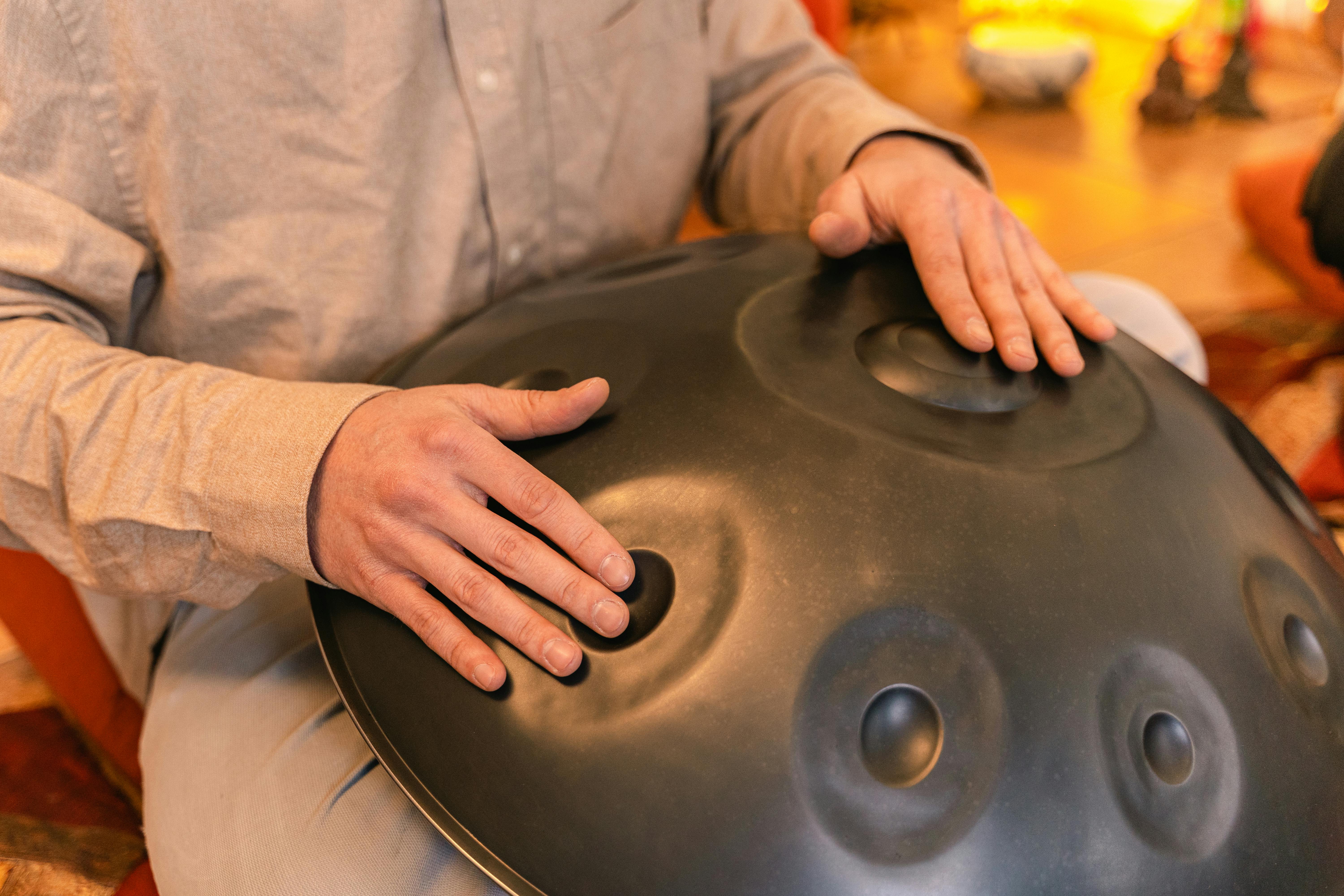Choosing the life of a full-time musician has its drawbacks. But enjoyment isn’t one of them. Bob Lyons has echoed this sentiment regarding his 30-year career as a steelpan performer, now based in South Florida, learning many other things along the way.
1. How did you get started playing steelpan? What attracted you to it initially? How many years have you been playing and when did you start?
“I grew up in Fort Lauderdale. My mother always loved steelband music. There wasn’t much around town, so she would bring home cassettes of the bands she saw in the Caribbean and play them around the house. I loved the songs and the rhythm, but at the time considered the steel drums to be a novelty. Like when someone plays a song on wine glasses with different levels of water in each one. I had switched from guitar to bass so I could play in my brother’s rock band when I was nine years old.
“When I was fourteen, a local bass player, Jaco Pastorius, turned the world upside down with his music, incorporating the steel drum as an integral part of his band’s sound. And of course his pan player, Othello Molineaux was incredible! That’s when I realized what a beautiful and serious instrument the steel drum was.
“I bought my first pan when I was 19, while in music school. I had no idea what to do with it, so I shouldn’t count that as a starting point. When I was 27 I bought a set of double seconds from a great pan player I was working with in San Diego, Gerald Lawrence. That’s when I started to take it seriously. So I’m doing this for about 30 years now, and I still feel like I’m just getting started.”
2. Would you consider playing wedding gigs to be your specialty? If so, why? What’s the most difficult aspect of playing for weddings and how do you overcome it?
“I’ve done more than 1,000 wedding ceremonies. Experience is 99% of the job for any musician. I got into it because people asked me to. I didn’t want to. I was nervous. I didn’t like being on the spot. You have to get it right the first time, while everyone is looking at you. It’s not a jam session. It was totally out of my reggae/calypso element. But I’ve always loved classical music and liked showing people how beautiful unaccompanied classical music sounds on the steel drums.
“Of course, the fear of screwing up was overwhelming. But after a hundred or so times (and some MAJOR screw ups) I started to relax, a little. I knew it could only get better, which it did. When the economy crashed in 2008, all the musicians I knew where out of work. And all my gigs got canceled except the weddings. As a result, I was able to get by during a very lean year. That’s when I realized that weddings are basically recession-proof. I started to take weddings a lot more seriously because of the financial stability they gave me.
People book weddings a year or more in advance. That helps me sleep at night. Sometimes there are many emails and phone calls discussing song selections, resulting in a lot more communication than playing at a birthday party. That’s the main reason we charge more for weddings. There’s a lot more time spent planning.”
3. What’s your biggest source of income as a pan musician? How did it become your biggest source?
“Playing live music. I don’t teach. And CD sales are pocket change. It’s always been about playing music live. Almost half my gigs are weddings. That’s a good balance for me. I worked a lot of miserable day gigs on my way up, and sometimes had to go back to them in a pinch. I can’t tell you how grateful I am to be able to play music for a living, and to be self-employed. I’ll never be rich, but my quality of life couldn’t be any better. I get out of bed and start my day when I feel like it. I’m a very lucky man.”
4. What types of advertising do you do to get gigs? What’s the most successful form?
“I have a paid listing on a wedding directory. The reviews people post there are probably the most important thing about it. That’s it. I’ve never given Google any money. I understand they are very expensive, and when you stop paying you disappear from their search results. I can’t risk that.
“I finally hired a web guy after ten years of building and maintaining my own website. The technology is way beyond anything an amateur can deal with any more. But remember, this is still a ‘word of mouth’ business. Internet advertising helps a little, but you need a solid reputation for being on time, pleasant, and well-dressed.”
5. You’ve gotten over 3 million views on Youtube from a single video and hundreds of thousands from other videos. What’s your secret? Any tips on how to make successful steelpan videos?
“I was tired of people asking me where they could come ‘audition’ me. Really tired. YouTube looked like an answer to that headache. Post a few videos as an online demo and that’s it. I figured they would want to see my hands in the video to prove I was actually playing too. The only other videos I could find were guys standing behind their pans smiling, and nobody knows where the music is coming from. When my videos started getting hundreds and then thousands of hits I couldn’t believe it. Then people started subscribing to my channel. I didn’t know what that was about.
“When ‘Under The Sea’ took off I had to start introducing myself to other pan players as the guy from YouTube. I got lucky. I got in early and focused the camera on the drums and my hands. The video took on a life of its own. I have no advice on how to get hits on your video. There are so many incredible videos and performances out there by the masters, and they get no traffic at all. I don’t understand any of it. I’ve never given YouTube any money and they’ve never sent me any either. Twelve million hits and counting now! It blows my mind. Life is funny.”
6. How do you sell yourself to clients once they call you for gig inquiries?
“The videos and the online reviews have to speak for themselves. What I can do is reply as quickly and clearly and pleasantly as possible. Try to answer their next questions before they ask too. Let them see that you are consistently responsive to their communications and will continue to be after they have hired you. The bar is pretty low in this business.
“There are a lot of great pan players in South Florida. They don’t have web sites. They don’t use email. Communication with them is difficult. Clients get nervous if they can’t get in touch easily and ask a question. They wonder if you’re going to remember to show up for the gig. Some older people insist on phone calls, even though texts and emails are so much easier and more efficient. It’s annoying. I try to be nice about it, but it’s a challenge. I hate talking on the phone.”
7. Do you use a contract? If so, what do you recommend it saying in general? Did you have a lawyer help you design it or just go based on what you know clients wanted in it? Do you require a deposit? If so, how much up front?
“Of course I use a contract. Used to have to print them out and mail them. Now it’s all PDFs. I keep it very clear and simple. The fine print legal jargon doesn’t make it look more professional and isn’t necessary. It doesn’t make the contract any more enforceable either, and people might be put off by it. Simple and clear. Times, dates, locations, addresses, and dollar amounts are what matters. I have lawyers in my family, so I always ask them to check the wording on any changes I make. I’ve never had to sue anyone, and I can’t imagine I ever would. And so far nobody has sued me. (Fingers crossed.)
“For deposit I only ask for $100. That’s plenty. I would rather just get the money on the day I do the work, but if I don’t get some money up front the bride could change her mind at the last minute. $100 stops that from happening. Also, on the contract I refer to it as a ‘booking fee/deposit’ so that they realize that there are no refunds. If you cancel, that is the fee for me holding the date and turning down other work. Nobody is going to sue me for $100, hopefully. A lot of DJs get half up front. I never want to be responsible for that much money beforehand. It would keep me up at night.”







Nice article. What are the most popular song requests for weddings and other gigs in general?